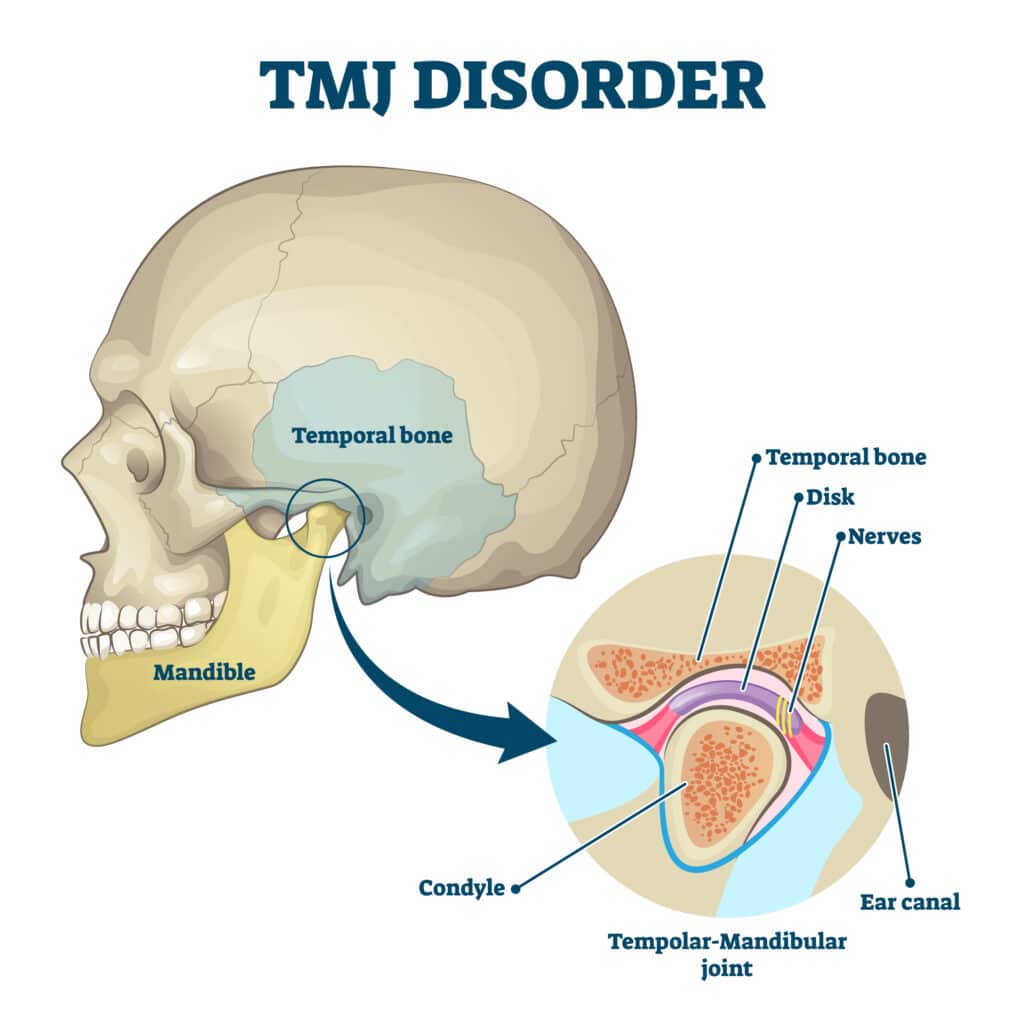Temporomandibular Joint Disorder (TMJ)

Do you find chewing and talking painful, and are you experiencing regular headaches, earaches, jaw pain, and facial aching? If the answer is yes, then you may be suffering from Temporomandibular Joint Disorder (more frequently referred to as TMJ). TMJ is a painful condition that can have a huge impact on your quality of life, directly affecting your jaw joint to cause unimaginable discomfort and infuriating side effects that make it tricky to hold a conversation or enjoy a tasty meal.
Symptoms Associated With Temporomandibular Joint Disorder
TMJ is better described as a condition rather than a specific disease, as it can present itself as a range of signs and symptoms from fairly mild to very severe. Some patients experience basic symptoms yet still function fully in daily life whereas others may find it near debilitating to cope with the side effects of their condition. TMJ seems more common in women rather than men, but anyone can fall victim to the condition. Symptoms can include –
- Discomfort in or around your ear
- Tender jaw muscles
- Popping sounds in the jaw
- Pain when opening or closing the mouth
- Aching while yawning or eating
- Locked or ‘disconnecting’ jaw joints
- Frequent headaches
What Causes Temporomandibular Joint Disorder?
A number of different conditions are associated with TMJ, which can make it tricky to identify the exact cause of each individual case. However, it does seem that a number of illnesses and issues are related to the onset of the condition, including –
- Jaw or head injuries
- Muscular or joint diseases, like arthritis
- Tooth grinding
- Anxiety
- Stress
Treatment & Prevention
Thankfully, you can prevent and manage Temporomandibular Joint Disorder, as it’s a condition whose symptoms can be reduced with the correct care. Regular check ups will give your dentist the opportunity to identify and treat possible symptoms associated with TMJ, and help to lessen the impact that the condition has on your oral health and daily life if you have already received a diagnosis.
The end result of your treatment will depend on you working hand in hand with your dentist to identify which options work when it comes to managing your condition. Any treatment is likely to involve a number of different steps combined for ultimate effectivity, as many routes need to be explored to find the most appropriate course of action for your unique case. X-rays are common in the diagnosis process to better understand the way that your jaw is positioned, as this can impact on your chances of experiencing TMJ.
Having access to a dentist that you can trust will make an enormous difference in your quest to treat and manage your Temporomandibular Joint Disorder. If you experience jaw pain or jaw popping and want to seek a professional diagnosis in order to create the most appropriate treatment plan for your individual needs, then contact us today to speak with an expert dentist about your condition. We can help you to prevent, identify and manage TMJ, supporting you in maintaining the best level of oral health.
